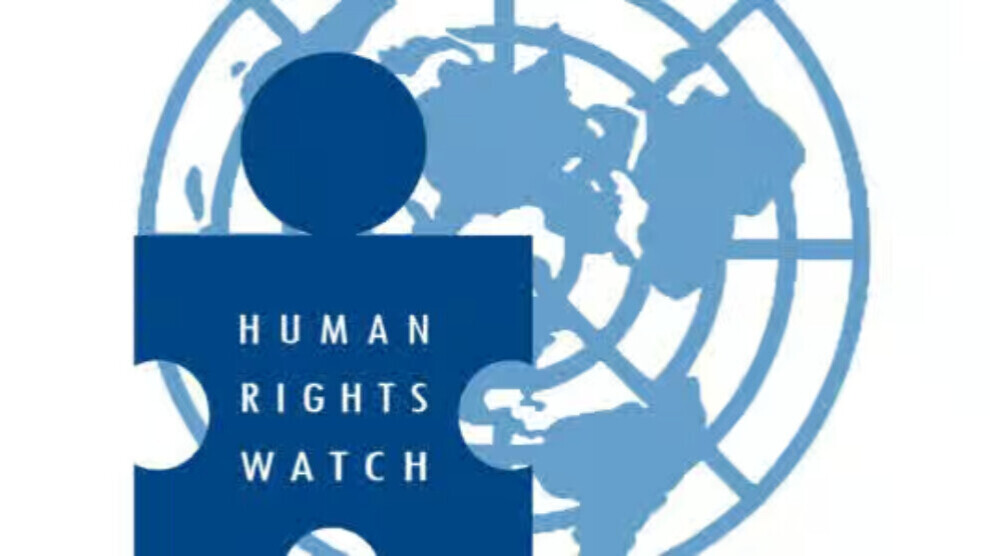At least 87 people executed in Iran after presidential elections in June
Iranian authorities have reportedly executed at least 87 people in the month after the presidential elections in late June 2024, Human Rights Watch said on Tuesday.

News Center- Iranian authorities have reportedly executed at least 87 people in the month after presidential elections in late June 2024, Human Rights Watch (HRW) said on Tuesday, stressing that the Iranian government has long made extensive use of the death penalty, including in response to protests in which those prosecuted and executed were exercising their fundamental rights to free expression and peaceful assembly.
In addition to the spate of post-election executions, on the morning of August 7, the authorities carried out mass executions of 29 prisoners at two prisons, according to the Iran Human Rights, a non-governmental group.
26 people were executed at Ghezel Hesar Prison and three people at Karaj Central Prison. Those executed included 17 people sentenced for “premeditated murder,” seven convicted on drug-related charges, and two Afghan nationals sentenced for “rape.”
“Human Rights Watch has for many years documented serious due process violations and unfair trials in Iranian courts.”
“The Iranian authorities are carrying out an egregious execution spree while trumpeting their recent presidential elections as evidence of genuine change,” said Nahid Naghshbandi, acting Iran researcher at Human Rights Watch. “For those campaign slogans to be meaningful, Iran’s new president, Masoud Pezeshkian, should urgently intervene to overturn existing death sentences, place a moratorium on capital punishment, and take steps to reform the judiciary.”
On August 6, 2024, the women’s ward of Evin prison, which has been taking part in the “No to Executions” protest campaign for months, held further demonstrations following Reza Rasaei’s execution.
Prison security personnel attacked the protesting women, beating and injuring many of the prisoners, some of whom suffered mental health effects. Among those injured was the Nobel Peace Prize laureate Narges Mohammadi, whom security personnel struck several times in the chest. Mohammadi suffered a respiratory attack and severe chest pain, causing her to collapse in the prison yard, the Iran Human Rights reported.
Iranian authorities have sentenced to death many ethnic and religious minorities in recent months, Human Rights Watch said. The Supreme Court confirmed the death sentences of six political prisoners in Vakilabad prison, in the city of Mashhad on August 8, 2024. On July 4, Iran’s Revolutionary Court sentenced a labor activist, Sharifeh Mohammadi, to death on a charge of “armed rebellion against the state,” based on an alleged membership in an opposition group. On July 23, Branch 26 of the Tehran Revolutionary Court sentenced Pakhshan Azizi, a Kurdish political prisoner, to death for alleged membership in opposition groups. Iranian security forces arrested Pakhshan Azizi, originally from Mahabad, in Tehran on August 3,2023 and then transferred her to Ward 209 of Evin prison. They denied her access to a lawyer and family visits for four months before transferring her to the women’s ward. Another Kurdish political activist, Warisha Moradi, who faces charges of “armed rebellion against the state,” did not attend her own trial on August 4. In a letter from Evin prison, she said that she would not participate in the court proceedings in solidarity with death row prisoners Sharifeh Mohammadi and Pakhshan Azizi. She said, “I do not recognize a court that fails to deliver fair judgments. I have been accused of armed rebellion simply for being a woman, a Kurd, and a seeker of a free life.”
249 people executed in first six months of 2024
Iranian authorities executed 249 people in the first six months of 2024, with 147 of them sentenced to death on drug-related charges, according to the Iran Human Rights. Iran was responsible for 74 percent of all recorded executions worldwide in 2023, with a total of 853 executions, according to Amnesty International.
